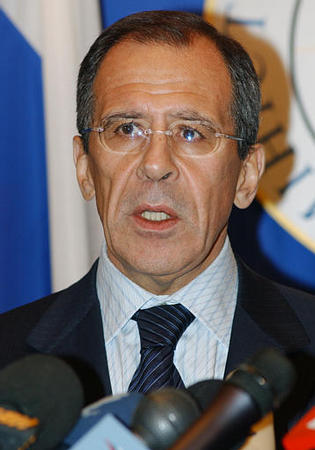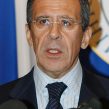
RUSSIA’S POLITICAL CLASS IS SPLIT OVER HOW TO PROCEED WITH INTEGRATION OF POST-SOVIET SPACE
Publication: Eurasia Daily Monitor Volume: 2 Issue: 64
By:

Contradictory Kremlin statements on the possible fate of the Commonwealth of Independent States (see EDM, March 31) reflect the strategic confusion among Russian policymakers and pundits about the country’s policy toward its neighbors in the post-Soviet lands. As the waves of “colored revolutions” sweep across the former imperial borderlands, Russian elites, sensing that they are increasingly losing control over what they still regard as their “backyard,” appear to be deeply divided over the strategy designed to reverse the process of Russia’s geopolitical retreat.
These philosophical divisions were laid bare at the latest session of the Council for Foreign and Defense Policy (SVOP) that took place on the weekend of March 19-20 at an elite sanatorium near Moscow. Several top officials and lawmakers, including Foreign Minister Sergei Lavrov, Collective Security Treaty Organization Secretary-General Nikolai Bordyuzha, Eurasian Economic Community Secretary-General Grigory Rapota, and Andrei Kokoshin, head of the State Duma Committee on CIS Affairs, made presentations. And if Russia’s top diplomat tried to put up a brave face in his introductory remarks, other politicians directly responsible for dealing with the neighbors within the CIS conceded that this organization, as well as other inter-state structures in the post-Soviet space, are experiencing deep crisis. Furthermore, their speeches demonstrated that the Russian foreign policy elite lacks a clear understanding of how to overcome the crisis and reassert Russia’s leadership role in the “near abroad.”
The discussion topics prepared by the SVOP experts proved to be even less encouraging. In the eyes of both political elites and the broader public of the CIS member-states, the experts note, Russia becomes less and less attractive as a potential source of integration processes. True, economically, Russia still remains a power to be reckoned with, but politically it “has stopped being interesting in the long-term perspective” for its CIS partners. If this negative trend persists, the SVOP analysis contends, within a span of five to seven years the CIS countries “will eventually be pulled into the zones of interest of other major world players” — namely, those of China, the United States, or the European Union. Ironically, it was none other than SVOP that in the mid-1990s issued an upbeat report titled “Will the Soviet Union Be Revived?” Now, no serious pundit or politician appears to entertain such illusions. “At present, nostalgia for the USSR has mainly moved from the political sphere to the sphere of culture,” the SVOP policy paper argues.
In the general discussion that ensued at the SVOP gathering, three principal scenarios of CIS development were advanced. One group of experts argued that everything should stay as it is, with the CIS serving as a convenient platform for informal dialog among the leaders of the former Soviet republics. Others suggested concentrating efforts on one or two “core groups” of countries — the Union of Russia and Belarus or the Single Economic Space — around which the new integration process could be kick-started under new, stricter, and more binding, terms. The third school of thought, however, advocated the speedy disbandment of the CIS as a rather costly and inefficient mechanism. One of the most categorical opinions was that of Mikhail Delyagin, a lawmaker and president of the Institute for the Study of Globalization, who bluntly stated that after last year’s Ukrainian election fiasco the CIS has ceased to exist as a more or less coherent geopolitical space and hence there is really nothing to discuss.
Another influential lawmaker (and former banker), Alexander Lebedev, argued, “The CIS has fulfilled its mission [which was] designed specifically for the transition period,” adding “over the last couple of years its functioning was a mere fiction.” Instead of the chimera of the CIS, Lebedev suggested setting up a Regional Development Bank that would, among other things, promote economic and financial ties among the neighboring states.
Whatever the CIS fate, most commentators agree that the Kremlin’s integration efforts will increasingly be focused on economic issues and on attempts to preserve Russia’s economic predominance in post-Soviet Eurasia. In the words of one noted foreign-policy expert, the prospects for any alliances or associations of the former Soviet republics based on military-political grounds become ever more illusory.
Significantly, Russian media reported about the March 28 formation of the Center for Integration Studies, which was organized within the Institute of International Economic and Political Research at the Russian Academy of Sciences. Lebedev was appointed as head of the newly formed think tank. In his opinion, today economic integration is the top priority as the “speculative inter-state constructions based on political declarations and reminiscences of former state unity have demonstrated their uselessness.”
(Nezavisimaya gazeta, March 22; Trud, March 23; Politcom.ru, March 24; Vremya novostei, March 28; Rossiiskaya gazeta, March 24, 30)




